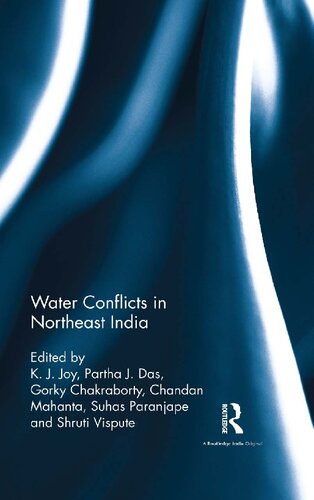

Most ebook files are in PDF format, so you can easily read them using various software such as Foxit Reader or directly on the Google Chrome browser.
Some ebook files are released by publishers in other formats such as .awz, .mobi, .epub, .fb2, etc. You may need to install specific software to read these formats on mobile/PC, such as Calibre.
Please read the tutorial at this link: https://ebookbell.com/faq
We offer FREE conversion to the popular formats you request; however, this may take some time. Therefore, right after payment, please email us, and we will try to provide the service as quickly as possible.
For some exceptional file formats or broken links (if any), please refrain from opening any disputes. Instead, email us first, and we will try to assist within a maximum of 6 hours.
EbookBell Team

4.0
6 reviewsNortheast India, apart from being the rainiest in India, is drained by two large river systems of the world – the Brahmaputra and the Barak (Meghna) – both transnational rivers cutting across bordering countries. The region, known for its rich water resources, has been witnessing an increasing number of conflicts related to water in recent years.
This volume documents the multifaceted conflicts and contestations around water in Northeast India, analyses their causes and consequences, and includes expert recommendations. It fills a major gap in the subject by examining wide-ranging issues such as cultural and anthropological dimensions of damming rivers in the Northeast and Eastern Himalayas; seismic surveys, oil extractions, and water conflicts; discontent over water quality and drinking water; floods, river bank erosion, embankments; water policy; transboundary water conflicts; and hydropower development. It also discusses the alleged Chinese efforts to divert the Brahmaputra River.
With its analytical and comprehensive coverage, 18 case studies, and suggested approaches for conflict resolution, this book will be indispensable for scholars and researchers of development studies, governance and public policy, politics and international relations, water resources, environment, geography, climate change, area studies, economics, and sociology. It will also be an important resource for policymakers, bureaucrats, development practitioners, civil society groups, the judiciary, and media.